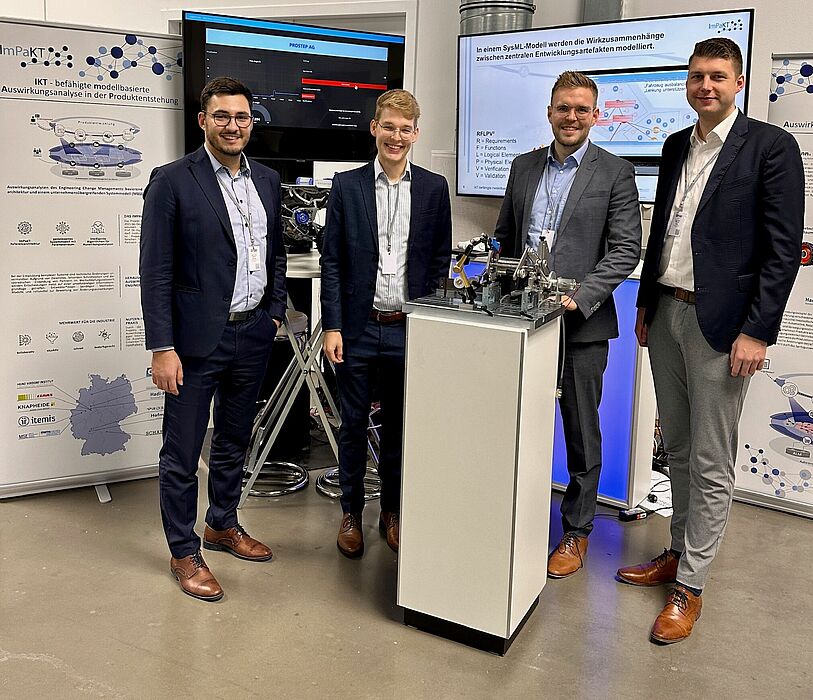Many people are familiar with the problem from private celebrations, their own home furnishings or the last DIY project: the plan is in place, everything is prepared - and then something has to be changed at the last minute. This uncertainty is particularly critical for industrial companies. After all, it is becoming increasingly difficult to predict the technical and financial impact of changes to their products. It becomes even trickier when several parties are involved in product development. A joint project led by Prof. Dr.-Ing. Iris Gräßler at the Heinz Nixdorf Institute at Paderborn University is providing a remedy: impact analyses use innovative IT solutions to make dependencies visible at an early stage, allowing companies to act rather than react. The consortium of research institutes, software manufacturers and user companies was supported by the Federal Ministry of Education and Research (BMBF) with around four million euros over a period of three years. The ‘ImPaKT’ research project - the acronym stands for ‘Information and communication technologies-enabled model-based impact analysis in product development’ - was successfully completed at the end of last year. The consortium will publish the final report in June. Companies interested in the results can contact Dominik Wiechel (dominik.wiechel@hni.uni-paderborn.de) by e-mail.
IT-supported solutions for overcoming challenges in change management
‘Companies know that system models and data are extremely valuable, but also time-consuming to maintain. We make it easier for companies to create system models that serve as the basis for impact analyses. We offer a standardised methodology for evaluating the consequences of changes to the product,’ explains Wiechel, research associate at Gräßler's Chair of Product Creation. Using special tailoring tools, companies can adapt the solutions to their individual needs and thus exploit the full potential of IT- supported impact analyses.
Increased efficiency through best practice examples and customised IT services
The project team is already setting standards in practice: CLAAS Industrietechnik GmbH is using the impact analyses to determine which components of its tracked undercarriage need to be replaced when developing a new agricultural machine. Hofmann Mess- und Auswuchttechnik GmbH & Co. KG uses the impact analysis to recognise which rotors on its machines can be balanced without any problems and which cannot. Hadi Plast GmbH can understand the effects of a change in plastic for the plastic items it produces for a loading system. The case studies offer practical insights into the effectiveness of the ‘ImPaKT’ solutions. In addition, IT services for eliciting requirements and analysing dependencies have been developed to support companies in creating their system models and facilitate the transition to the change management of the future.
New perspectives for change management in mechanical engineering
‘ImPaKT’ is bringing about a fundamental change in change management: companies no longer have to compile complex, distributed data, but instead benefit directly from an integrated system model. ‘This approach makes it possible to evaluate technical changes efficiently - without time-consuming meetings or extensive documentation,’ says network coordinator Gräßler. The focus is on the use of existing data and the reuse of modelled information in order to minimise the workload and increase efficiency.
Confirmation from industrial practice demonstrates the added value of the ‘ImPaKT’ results. Gräßler comments: ‘Despite the need for organisational change in companies in order to realign requirements and change management, the results show clear approval from users. ‘ImPaKT’ therefore not only offers technical solutions, but also a basis for future-orientated and efficient change management in mechanical engineering.’
This text has been translated automatically.



